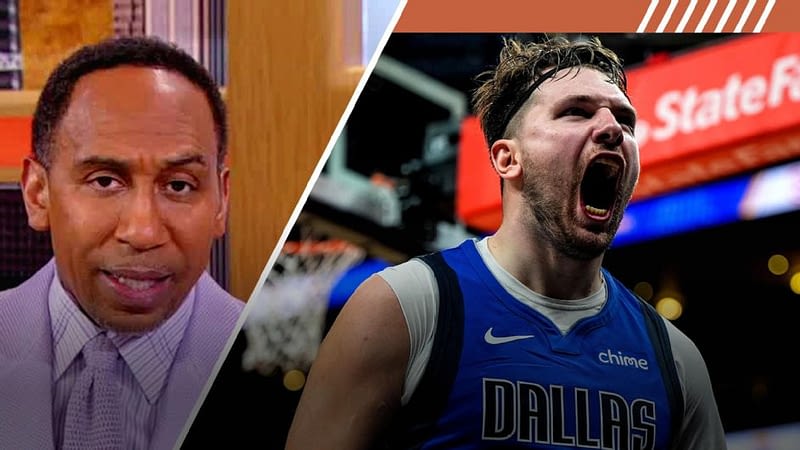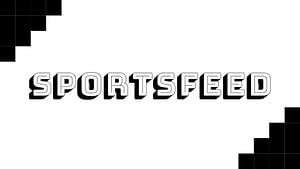Inside the Blockbuster Trade: Luka Doncic for Anthony Davis
Picture this: You walk into one of the seven Ascension Coffee shops in Dallas, where baristas meticulously craft the cafe’s signature Japanese iced drip coffee. It’s a process that takes 12 hours, as water slowly filters through tall glass towers before being hit with nitrogen and poured into a cup. On the morning of January 7, this serene setting became the backdrop for a conversation that would shake the NBA to its core. Dallas Mavericks general manager Nico Harrison met with Lakers general manager Rob Pelinka at the Ascension Coffee in the Hotel Crescent Court lobby, just a stone’s throw from the American Airlines Center, to initiate a trade discussion as complex and delicate as the coffee-making process itself.
Fast forward nearly a month, and the NBA world was left reeling. The Lakers and Mavericks executed what many are calling the most shocking trade in NBA history. The Mavericks traded their 25-year-old perennial MVP contender, Luka Doncic, to the Lakers in exchange for All-NBA big man, Anthony Davis. The trade was executed with such secrecy that not a whisper of it leaked beforehand.
The reaction in Dallas was immediate and intense. Fans took to the streets in protest, creating a makeshift memorial outside the team’s arena at the foot of the statue of Mavericks legend Dirk Nowitzki. Nowitzki himself expressed his dismay with a simple sad-faced emoji, a digital nod to the player many believed would one day join him in bronze.
Across the NBA, stars were left stunned, including the players involved in the trade. Doncic, caught off guard, sent a quick group text to his teammates but did not respond to Harrison’s call. Meanwhile, Davis was in Los Angeles, texting congratulations to his teammates after a victory over the New York Knicks. LeBron James was out to dinner in New York when he received a call from Pelinka, just minutes before ESPN’s Shams Charania broke the news. Kyrie Irving found out about the trade on social media while undergoing treatment at the Mavericks’ hotel in Cleveland.
Executives around the league were both furious and envious that the Lakers, with their star-studded reputation, were the only team given a chance to bid for Doncic. “Unfathomable,” one Western Conference executive told ESPN. “I’m stunned,” an Eastern Conference executive texted.
Despite the shock, sources from both teams described the trade process as straightforward, a testament to the trust between Harrison and Pelinka, forged over two decades with the late Lakers icon, Kobe Bryant. Harrison, determined to avoid the pitfalls of a public bidding war, chose to keep the circle small, trusting only Pelinka to handle the sensitive negotiations.
Even the Utah Jazz, who facilitated the trade by absorbing Jalen Hood-Schifino in exchange for two second-round picks, were unaware of the full scope of the deal until an hour before its completion. Jazz president Danny Ainge, a former rival from the Boston Celtics, had only 30 minutes’ notice that the Lakers were about to acquire Doncic.
But by then, it was too late to stop the wheels of NBA history from turning.
The Trust Behind the Trade
The relationship between Pelinka and Harrison dates back to the summer of 2003, when both were young executives trusted by a then-25-year-old Kobe Bryant. Bryant had left his longtime agent Arn Tellem and convinced Pelinka to join him. At the same time, Bryant was a sneaker free agent, and Nike, focused on a high schooler named LeBron James, tasked Harrison with recruiting Bryant. Despite initial resistance, Harrison’s persistence paid off, leading to a five-year, $40 million deal for Bryant with Nike.
Their bond was tested when Bryant faced legal troubles in Colorado, but over the years, Pelinka and Harrison became part of Bryant’s inner circle, traveling the world together on Nike business and family vacations. This deep-rooted trust is why Harrison felt comfortable discussing the biggest gamble of his career with Pelinka.
“I understand the magnitude of it,” Harrison said. “The easiest thing for me to do is nothing, and everyone would praise me for doing nothing. But we really believe in it. Time will tell if I’m right.”
Evaluating Doncic’s Future
Since joining the Mavericks, Harrison has closely studied Doncic. While he admired Doncic’s talent and competitiveness, Harrison harbored doubts about Doncic’s work ethic and conditioning, concerns shared by head coach Jason Kidd. Despite Doncic’s impressive stats, including a career 28.7 points average, third in NBA history behind Michael Jordan and Wilt Chamberlain, his off-court habits were a source of frustration.
In an attempt to motivate Doncic, the Mavericks made changes around him, including firing key staff members he was close to. However, the plan backfired, and Doncic’s dissatisfaction grew. Despite hiring a personal “body team,” Doncic’s conditioning issues persisted, leading to missed games and weight fluctuations.
With the team’s ownership changing hands from Mark Cuban to the Adelson family, the decision to trade Doncic was seen as a business move to preserve financial flexibility. Harrison believed Davis could bring a new defensive identity to the team.
Doncic was eligible for a record-breaking extension, but the Mavericks were wary of committing long-term. “I feel like we got out in front of what could have been a tumultuous summer,” Harrison said. “Other teams were loading up, and he was going to be able to decide whether he wanted to be here or not.”
While Cuban declined to comment, others within the organization were vocal. Haralabos Voulgaris, former director of quantitative research, criticized the trade on social media, calling it potentially the worst in sports history.
Lessons from the Past
Cuban was present during the Lakers’ last major trade attempt in 2011, which was vetoed by then-commissioner David Stern. The experience taught the Lakers the importance of secrecy in trade negotiations. In 2019, a drawn-out negotiation for Davis damaged relationships with young players, and last season, a potential trade involving James was shut down by his agent.
This time, the trade discussions were kept within a tight circle, excluding even key players and agents. Doncic expressed gratitude to Mavericks fans in a social media post, while his father criticized the secrecy surrounding the trade.
Despite the shock, Doncic and his camp found solace in being traded to a prestigious franchise like the Lakers. “Nobody likes being traded,” a source close to Doncic said. “But they sent him to the Lakers when they could’ve sent him anywhere.”
Looking Ahead
Harrison was aware of the risks involved in such a monumental trade. As the deal gained momentum, the Lakers brought in Utah as a facilitator, keeping the details under wraps until the last moment. The trade, finalized at 12:15 a.m. ET Sunday, sent Davis, Christie, and a 2029 first-round pick to Dallas in exchange for Doncic, Maxi Kleber, and Markieff Morris.
The trade raises questions about the Lakers’ future, particularly regarding James’ no-trade clause and his desire to finish his career in Los Angeles. While James remains committed to the Lakers for now, potential suitors like the Warriors and Suns could make a move.
For the Mavericks, the trade represents a gamble on a new direction. “I’m sorry [fans] are frustrated, but it’s something that we believe in as an organization,” Harrison said. “It’s going to make us better. We believe that it sets us up to win, not only now, but also in the future.”
Only time will tell if Doncic will prove the Mavericks wrong, but for now, the NBA landscape has been irrevocably altered.
Originally Written by: Ramona Shelburne,Tim MacMahon





















